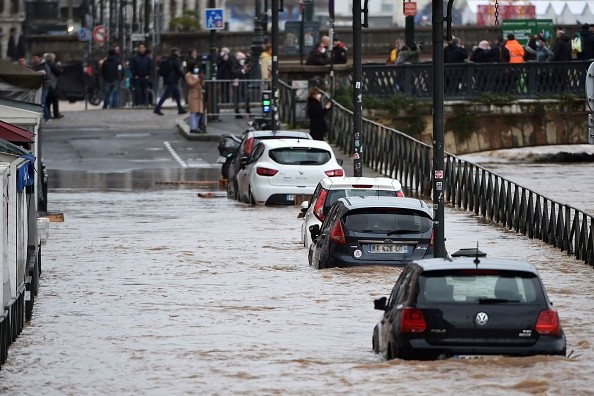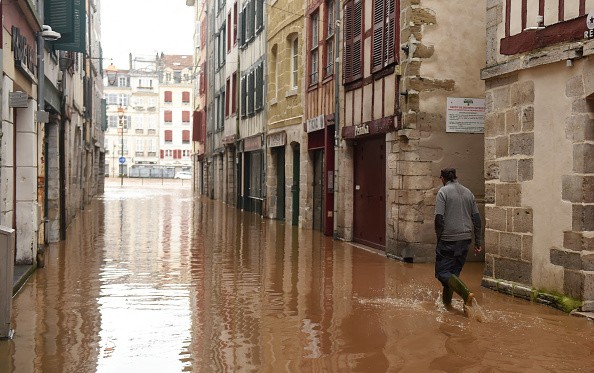Heavy rains pummeled southwest France overnight, causing rivers to exceed their banks and prompting the evacuation of dozens of people.

Southwest France Experiences Flooding
As a result of recent warm southern winds, snowbanks have liquefied in the Pyrenees mountains, which has also contributed to the floods that might last for several days.
Firefighters responded to more than 250 calls in the previous several hours, but there have been no catastrophic accidents or fatalities, Interior Minister Gerald Darmanin said after meeting with local authorities.
Local flooding was also recorded in the Pyrenees, which split France from Spain. Meteo France weather agency also warned of increased avalanche risks in this area, according to Phys.org.
Spanish authorities say a lady was killed in her vehicle on Friday after a landslide.
More Rainfall Expected
While the situation is "under control," expectations of more rain might lead to severe flooding in many towns and cities, according to Eric Spitze, the French government's senior official for the Aquitaine region that includes Bordeaux.
People gathered along the banks of the Nive River in Bayonne, France, to photograph the torrents, as loudspeakers warned them of the dangers. Businesses along the Nive River were asked to shut by Mayor Jean-Rene Etchegaray as well
Power outages have been reported in hundreds of houses throughout the area. More than 100 people have been evacuated from their homes in the coastal town of Carcassonne, which was hit by a devastating landslide caused by the torrential rain, as per BBC.

Flood Preparedness Plan
Floods are the most prevalent and damaging natural disater. Floods are frequently linked with overflowing rivers and tropical storms, although they may occur everywhere. During torrential rains, cities may be flooded.
Flood preparation should be part of residents' plan if they reside in a flood-prone region. Before a flood make sure to:
Determine your flood risk.
Come up with a flood emergency plan.
Prepare an emergency kit with a flashlight, batteries, cash, and first aid items.
Buy flood insurance. Examine your property insurance policy for flood coverage.
Learn about local emergency preparations. Know where to go and how to get there if you need to evacuate or go to higher ground.
Elevate furnaces, water heaters, and electrical components. Install a sump pump to keep water out of your house.
Seal the walls of your basement.
Install back-flow preventers or standpipes on sewage lines to prevent flooding.
During a flood make sure to:
Listen for weather updates, emergency alerts, and evacuation orders on radio, TV, or online.
If you have the time, move furniture and other stuff up.
Be ready to off utilities if asked.
Prepare to evacuate if told to do so.
In the event of flash floods, act immediately. Move to higher ground.
Avoid traveling through flowing water. Check the ground with a stick.
© 2025 NatureWorldNews.com All rights reserved. Do not reproduce without permission.





